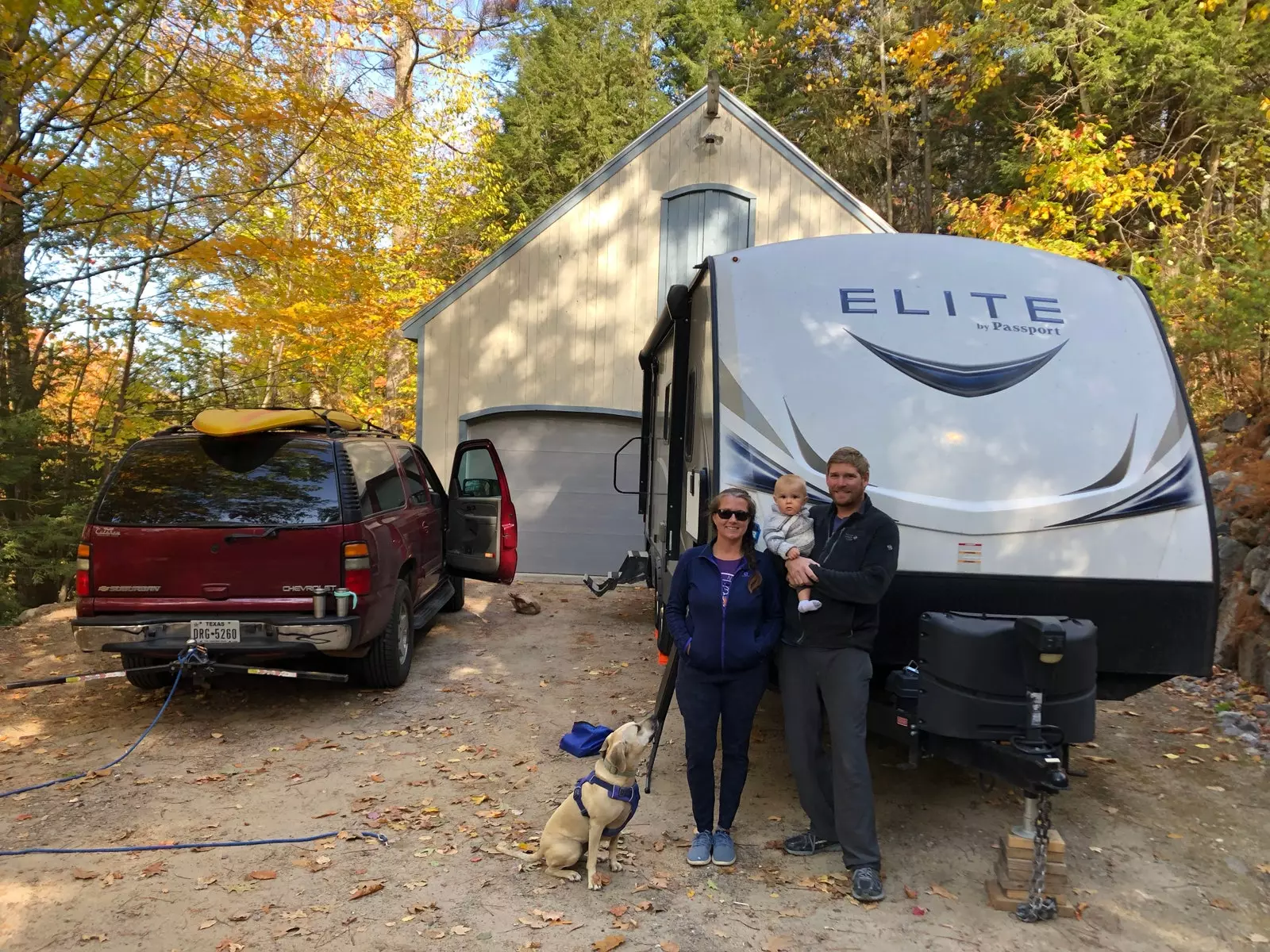
While the world was confined, the McCullough family made a controversial decision: not to stop traveling in their caravan.
"One of the lessons we've learned is that in some states people ask you more about the dog than about your child," he says. Caroline McCullough laughing with him little Calvin in arms. Beside her husband Aaron and the yucatan bitch make up the McCullogh family , the protagonists of a journey that had to end “ when this pandemic is over ”, without being aware that they had started the adventure of their lives. Their friends already call them " covid travelers ”, and they, resigned, do not dodge the nickname knowing that, no matter how far they drive, the global pandemic will continue to lurk in the rearview mirror.
Because they can say, without fear of being wrong, who have burned the odometer . To date, the McCulloughs have stepped a whopping 39 of the 50 US states . Slowly but surely, Aaron unleashes pearls of his incredible story after parking the 2005 Chevrolet Suburban, putting on the 7-meter Keystone Passport caravan and activating the necessary devices to be able to lead a “normal” life in their microworld . “The first few days it took me more than an hour for fear of leaving something behind. Now in less than a quarter of an hour I have everything ready”, she says after the third lap around the trailer. This morning they woke up on the deserted beaches of Cape Cod Y today they will sleep watching the stars of the mountains of New Hampshire . A friend has offered to spend the night in his rented house, but after dinner they will return to the comfort of their caravan. "If our home is waiting in the parking lot I don't see any compelling reason to sleep outside."
With an enviable tan and a calm tone of voice, Aaron opens up exclusively for Condé Nast Traveler. Thousands of miles from his fixed home in New Orleans, where Hurricane Zeta has unleashed all its wrath , he values with stoic philosophy the irruption of natural phenomena. “ It is as if the misfortunes of the weather warned us that it is not yet time to go home ”. The truth is that they are not clear when they will put an end to their trip and if it will coincide with the arrival of the coronavirus vaccine. “All the economists said that this would be a matter of a few months, but we are not even close to normality. We prefer to go a bit to jump from the bush without thinking much further. I've taken three more months' leave of absence from work without pay."
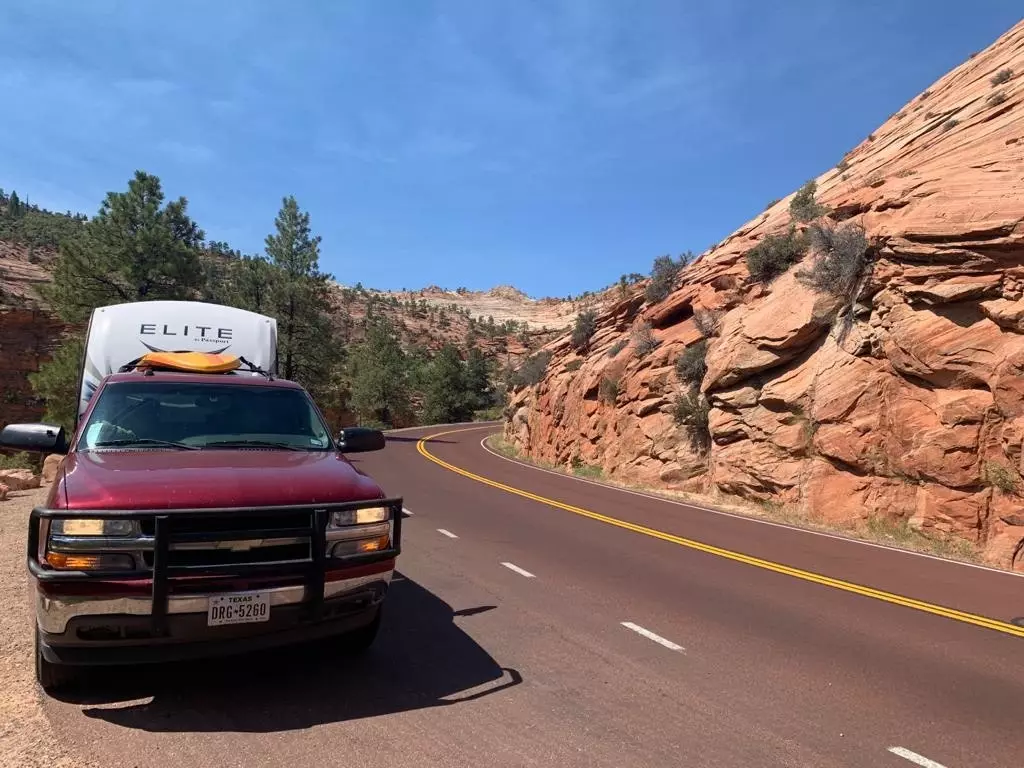
“It is as if the misfortunes of the weather warned us that it is not yet time to go home”
Before the arrival of Covid-19, Caroline left her job coinciding with the birth of her son, Aaron took a leave of absence in the multinational where she worked and they bought a caravan for 16 thousand dollars. “It was the right time. Many families had the same idea, but a few days later the prices went through the roof”, she assures. Without much reaction time on May 12 they left with the idea of returning after three months . “It was an escape from the new reality. The goal was to visit as many National Parks as possible. , Taking into account that large outdoor spaces imply less risk of contagion”.
They visited South Dakota, Mount Rushmore, the Black Hills, Wyoming, Yosemite or Yellowstone parks, Big Sur and the entire West Coast. . “On a few occasions we have come across people who criticized our attitude as travelers during the pandemic, but it is true that there was an unpleasant episode in Orcas Island (Washington) . A retiree saw the license plate from Texas, which was a hot spot of the pandemic at the time, and was so outraged that he badly invited us home,” he recalls. "But most of the people we've talked to they congratulate us for the courage and for having a great idea . The conclusion is that we are still at home. What has changed is that now our house moves . We prefer to think that we are on a coronacation, something like the Covid vacation.”
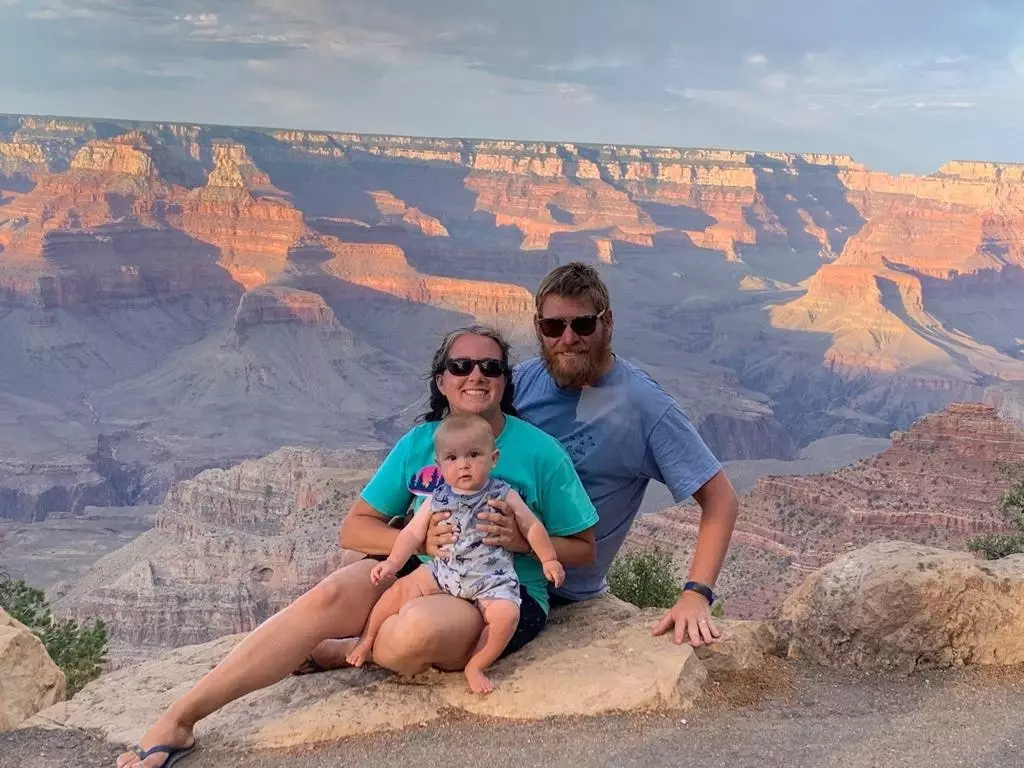
"I was and am convinced that by traveling consciously you can commit to security in the same way as locked up at home"
Aaron touches on a touchy subject, that like almost everything in this life he has a new term in English, the travel shaming , which revolves around the idea of traveling embarrassed to be aware that traveling in bubble mode during a pandemic puts local people at risk of contagion . When 99.9% of the world's population confined themselves at home, the McCulloughs decided to travel . And he is aware that it is a vital decision that can cause controversy . “I was and am convinced that traveling consciously you can compromise on security in the same way as locked up at home. We always bet on open spaces and respect social distances with most people. When we pass through cities we don't even stop. Although we must also highlight another interesting phenomenon that we live outside the main cities and urban areas. Most people don't think or worry about Covid-19 all the time. They just go about their daily lives . And it's been nice to realize."
A way of being respectful with the landscape they leave behind, with its people and with themselves. Something that they have been learning and modeling over time. “At first everything was very confusing. because there were states or regions in which preventive quarantine was mandatory for the visitor . on other sites very vulnerable access was even prohibited, as is the case with protected Indian reservations for obvious reasons. Also, some national parks open and some not. Communication with other travelers was constant and, in case of doubt, Google was the salvation to decide the next destination ”, clarifies Aaron.
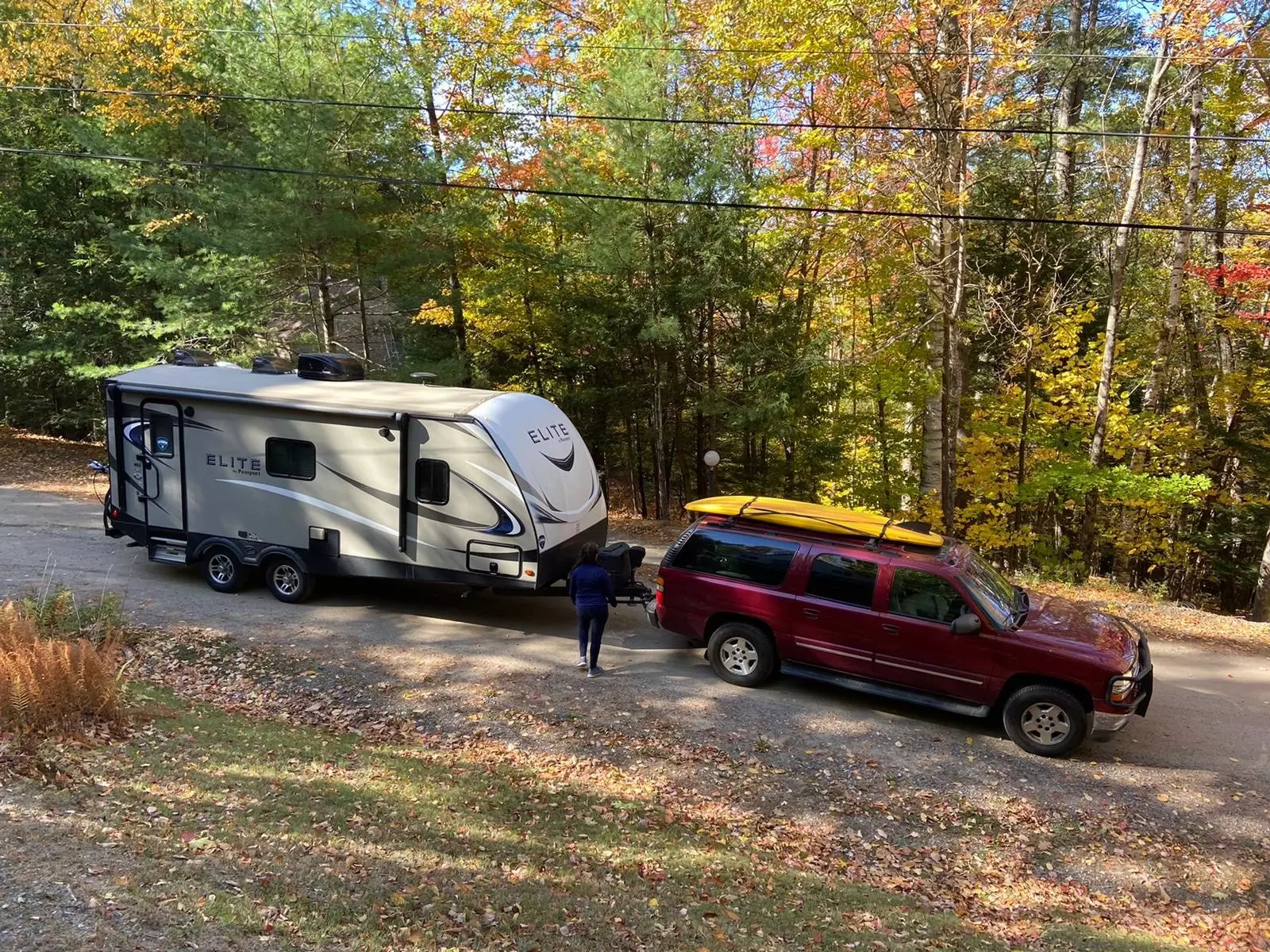
"At first everything was very confusing, because there were states or regions in which preventive quarantine was mandatory for the visitor"
After the first three months they returned home to New Orleans, mainly to make sure everything was in place and to see family. "But we really served to strip us of many useless objects . We found that many things we had only used once or twice during the first three months. They took up space and were completely expendable! We give importance to things that have no value when the moment of truth arrives. For example, we took many kitchen utensils to prepare good food without realizing that we were no longer in the kitchen at home . We went back to the essentials: a paella, a pot, plates, glasses and cutlery”.
Despite making quick decisions, the McCulloughs impose three unwritten rules on themselves as Covid travelers: “ First, we drive in sunlight because we do not want the desire to sleep or fatigue to put our lives at risk. If you have any mechanical problem, everything is easier at noon than at dawn. In second place, we continually remind ourselves that it is a trip to enjoy the landscape . A voluntary trip with no rush to reach any meeting point or pre-established route with pre-established dates. And third, the deer . You have to be very careful with deer on the road because there are a lot of them and we don't want to cause any damage."
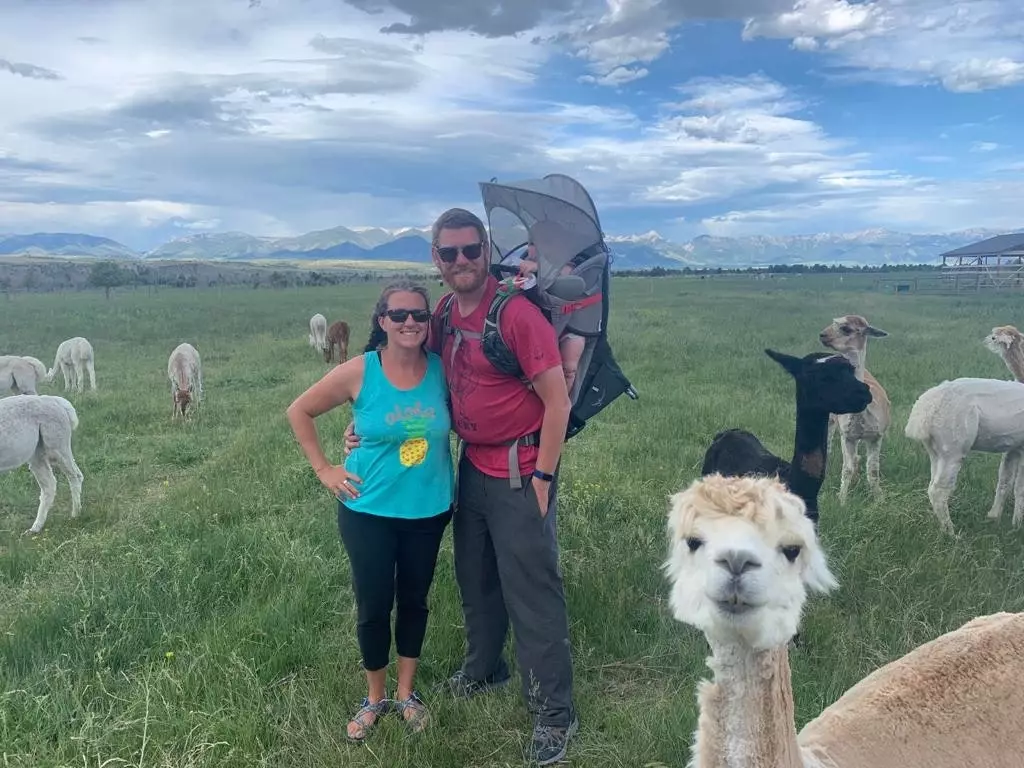
"The exciting thing about this adventure is that we have rediscovered our own country"
After seven months behind the wheel it was to be expected that they would have anecdotes to give and take. Two of the craziest are related to two” near misses ”. “When I was driving down the narrow, winding roads of the California mountains, we passed a car coming down the hill making infernal noises . I thought we were all going to die." The other was on the border with Mexico when they almost get crossed on a bridge without the possibility of moving forward or backward . “We had always traveled a lot, but always in times that were imposed by society and the job. Our trips were conventional like those of the rest of our direct environment: a plane flight and spending two weeks on an exotic beach or a charming city. The exciting thing about this adventure is that we have rediscovered our own country and all these special places that you heard about as a child, but never went to for one reason or another. Without a doubt, my perspective of how things can be enjoyed has radically changed”, he reflects.
Perhaps the great mental click of the McCullough family is in regard to the economic issue. “ Traveling this way does not spend much money . the closest thing to a monthly budget that I can venture is 3 thousand dollars per month . And the gas line always takes the lion's share, because being an older SUV uses a lot more fuel per mile than it should. Likewise, compared to spending at home, it is much less than what is usual in our sedentary life.” From a sedentary family to a nomadic family without the handicap of fear of running out of money . “Most of the memories and moments that I will keep forever in my memory were without spending a dollar. I used to think about taking my son to Disneyland next Christmas and now I'm planning the best way to get across Florida to see alligators in the wild."
They don't dread the time to come home . What causes them the most panic is to return to the lives of before, which is substantially different. “Since I got out of college all I did was work, work and work so that we do not miss anything. 8 years of very hard work in a very competitive sector. And now I haven't even checked emails for 7 months,” she says with a grin from ear to ear..
